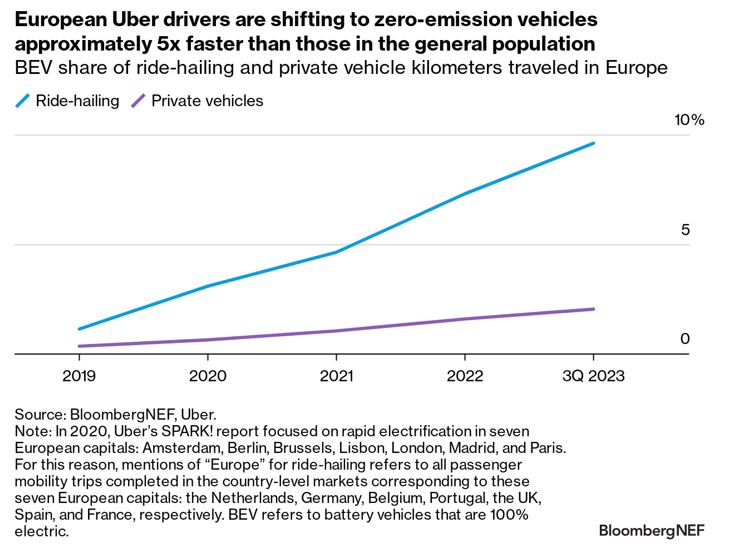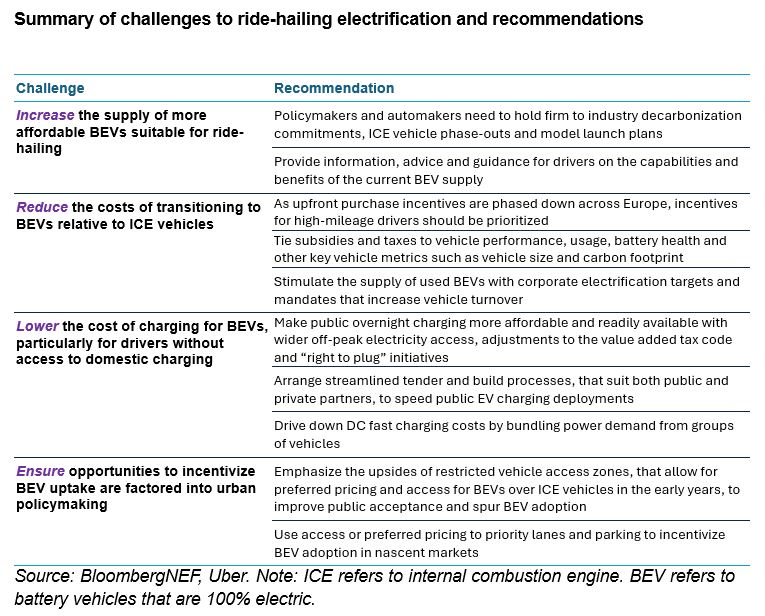By Andrew Grant, Head of Intelligent Mobility, BloombergNEF
The electrification of ride-hailing and other point-to-point, on-demand and shared mobility services must be accelerated to maintain Europe’s decarbonization momentum in line with the Paris Agreement, according to BloombergNEF’s (BNEF’s) report ‘Driving the Next Phase of Electric Mobility in Europe’, which was commissioned by Uber.
Road transport currently accounts for around 18% of global CO2 emissions. While significant progress has been made in limiting emissions from the sector, further acceleration is required for the whole transport industry, including ride-hailing and other shared mobility services, to progress towards zero emissions. Ride-hailing is already going electric much quicker than other driver groups. Across Amsterdam, Berlin, Brussels, Lisbon, London, Madrid, and Paris, nearly 10% of ride-hailing kilometres are now in battery electric vehicles, compared to about 2% in the general population.

The report identifies the key challenges and discusses potential solutions to accelerate the rate of decarbonization in the transport industry. The measures outlined within the report are not solely linked to the on-demand transport industry and have the potential to act as a catalyst for change across the entire mobility ecosystem.
The report lays out four key challenges and opportunities, with a focus on the European market:







